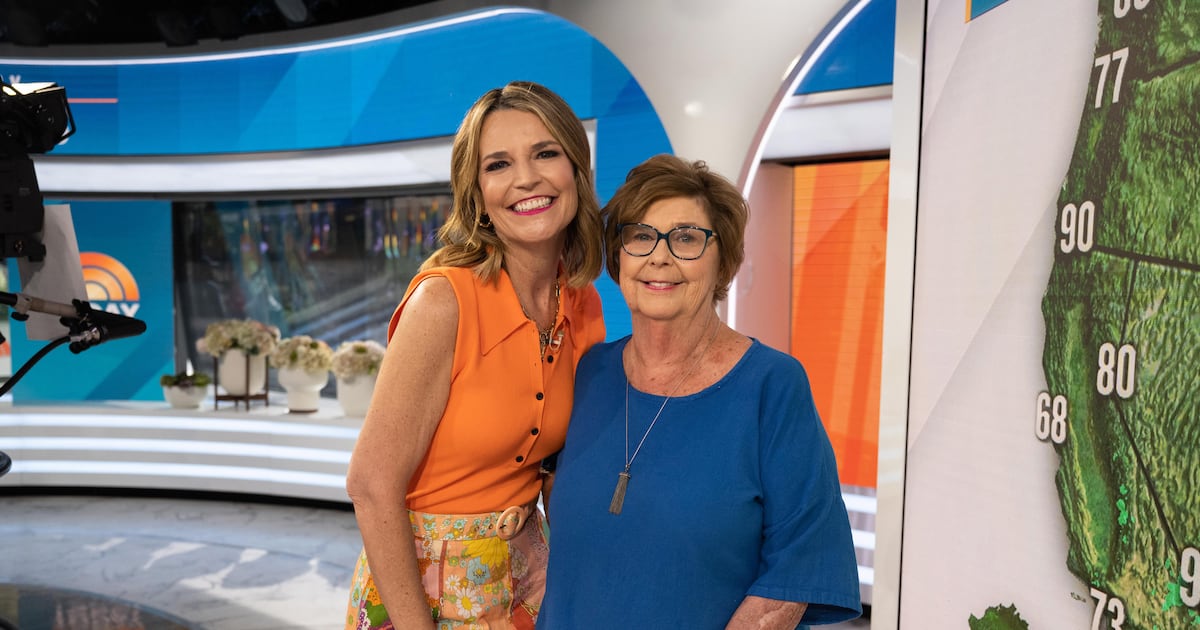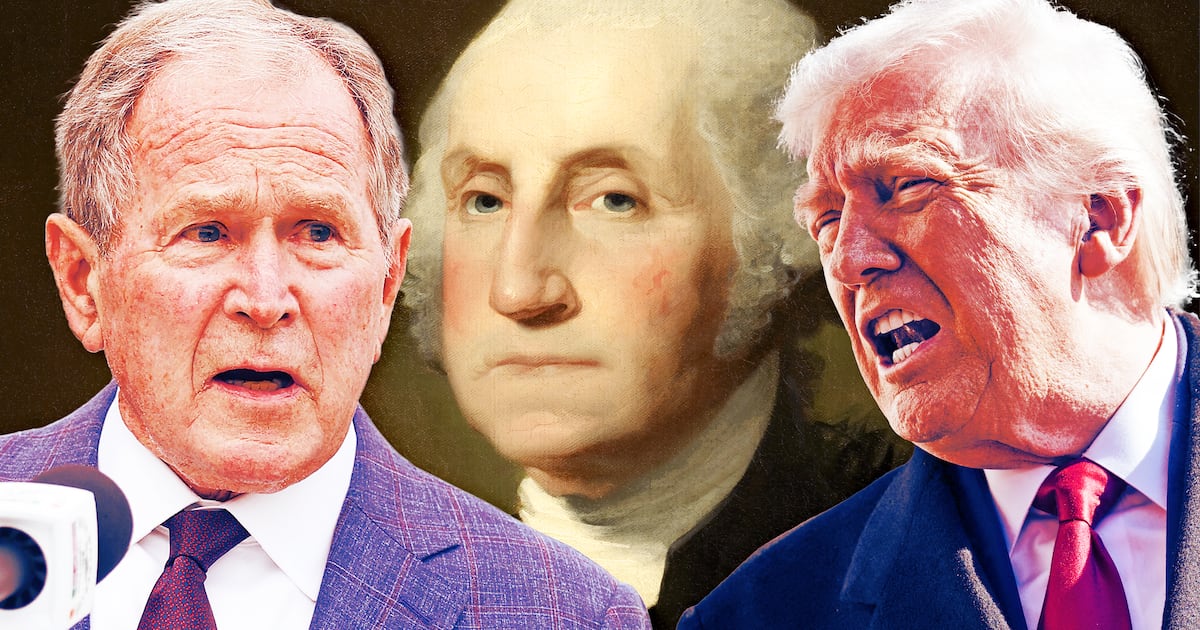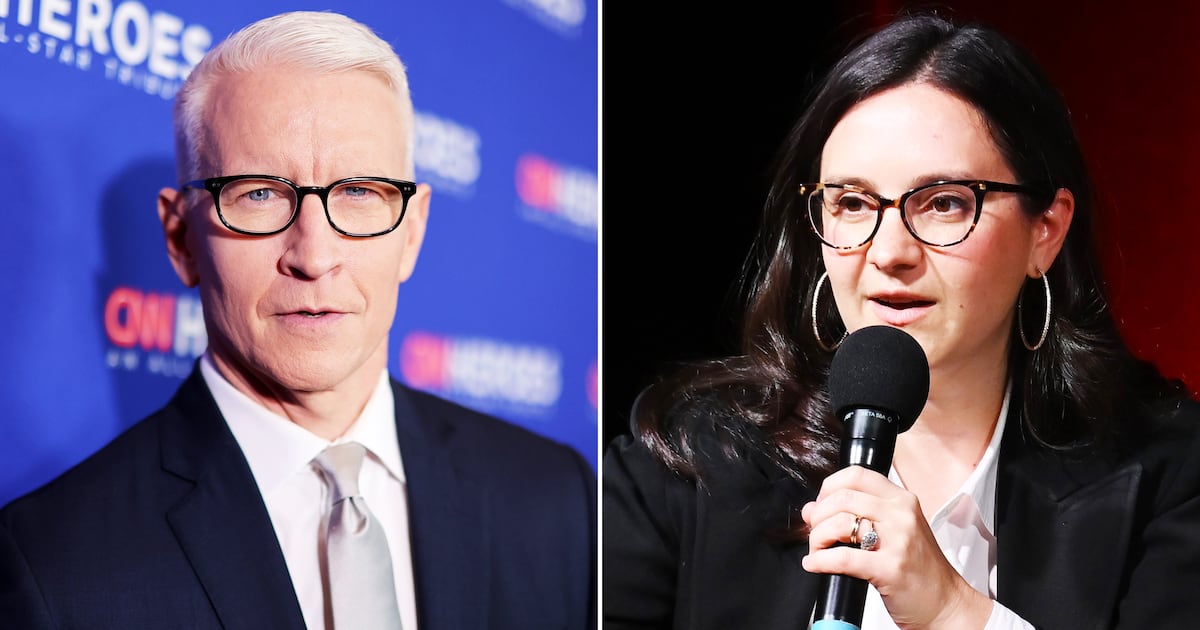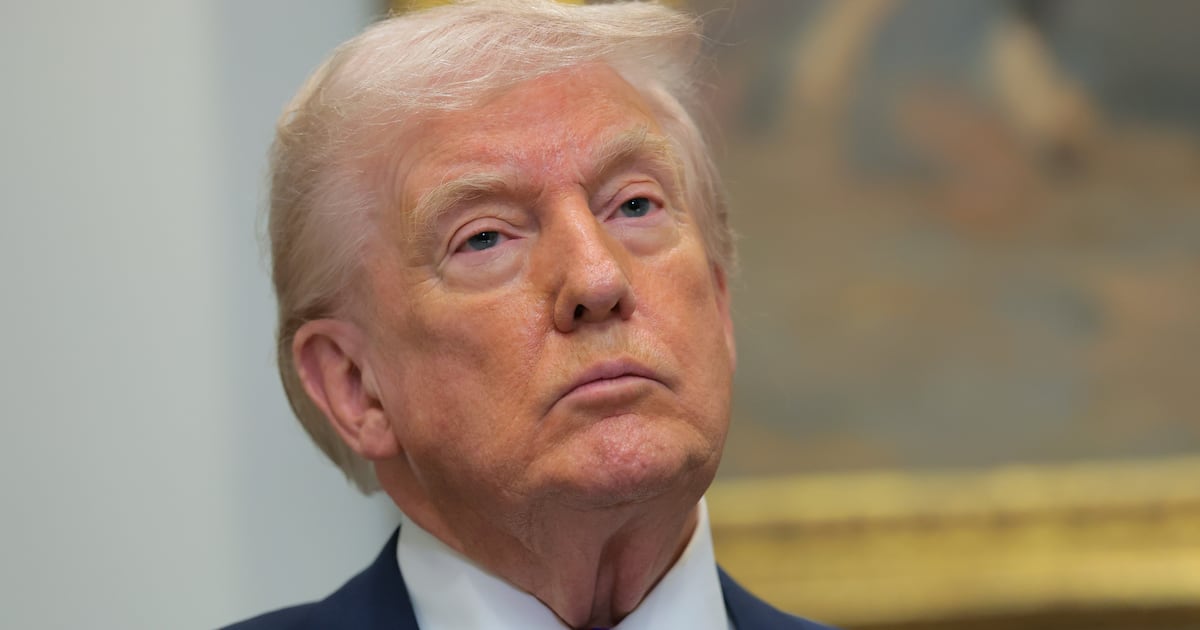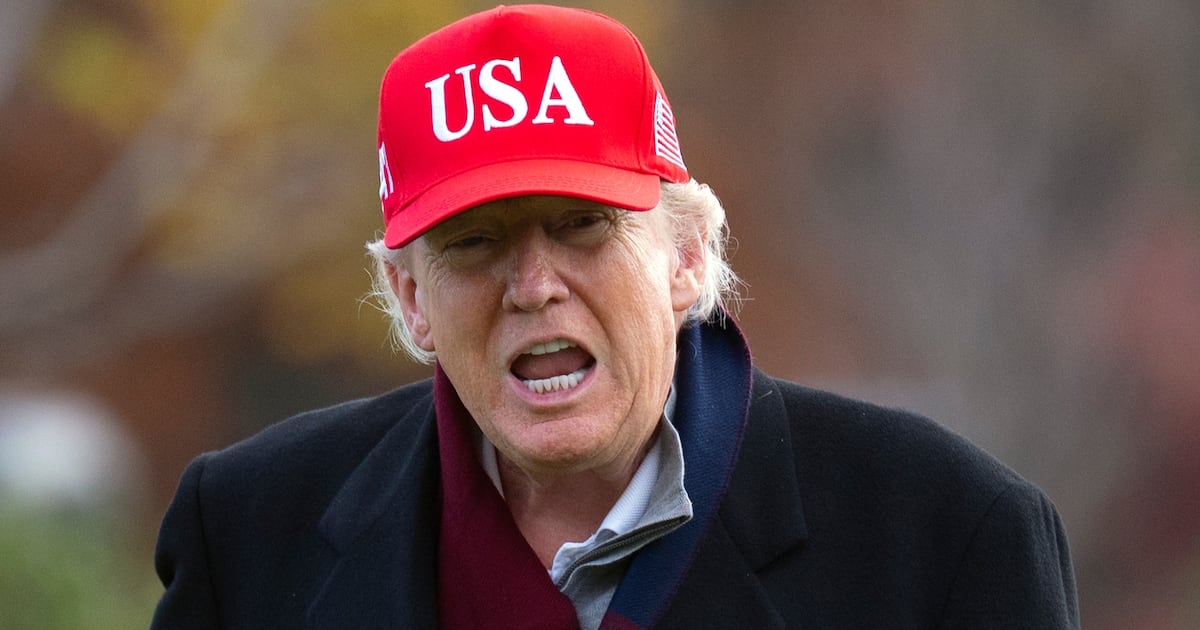Robert Mueller may be the face of the independent investigation into Russian meddling in the U.S. election, but a cybersecurity wonk on the federal bench may help decide Trump & Co.’s fate.
Behind the scenes, Beryl Howell is in a position to make pivotal decisions. And her importance could only grow. Federal court rules indicate that she signed off on Mueller’s request to assemble a grand jury, a highly secretive gathering of about two dozen people in Washington’s E. Barrett Prettyman courthouse that will grill witnesses and demand Trump associates’ documents.
And if (well, when) Team Trump’s lawyers hit back, Howell will be the umpire-in-chief: deciding whether or not Trump allies’ lawyers can quash subpoenas, and whether or not people like Jared Kushner can invoke what’s known as executive privilege to get out of testifying under oath before Mueller’s grand jury.
These decisions could be immensely consequential.
“Even though she worked for Democrats on the Senate Judiciary Committee, she’s been very straight-arrow as a judge and she wouldn’t be impaneling a jury for the heck of it, or anything less than there being ample justification for it,” said a former federal lobbyist, referring to Howell’s previous work for Sen. Patrick Leahy. “She’s like Mueller: He wouldn’t ask for it unless he had more than enough evidence to justify it, and she wouldn’t have granted it unless he did.”
In the coming months, Howell’s role could become far more active. The grand jury could put together a report that would kick off impeachment proceedings, according to conservative former federal prosecutor Andrew McCarthy. The manual for U.S. attorneys says that before the grand jury could issue a report making any of its findings public (or available to Congress), a judge—meaning Howell—would have to approve it.
Howell has been especially active in overseeing Washington grand juries, releasing six unsealed opinions on their findings in the last 12 months.
And she has known one of Mueller’s top attorneys since at least the early 1990s.
Howell and Andrew Weissmann have known each other since at least 1991, when they were both assistant U.S. attorneys in the Eastern District of New York, in Brooklyn. They worked there when the borough was riddled with violent crime, and when prosecutors in some boroughs sometimes had to have security guards escort them to their cars after hearings. Federal prosecutors often form close, life-long relationships with their fellow assistant U.S. attorneys. In New York City in the early ‘90s, the number of murders reached a historic peak. Facing that level of crime would likely produce unusually strong bonds of camaraderie, according to a former federal prosecutor who worked in New York.
Howell working as a prosecutor in Brooklyn in 1987. Weissmann joined the same office in 1991. And Loretta Lynch, the future attorney general, became a prosecutor there in 1990—working just down the hall from Howell, according to remarks the judge made at a dinner honoring Lynch on May 7, 2016.
In the clubby legal circles of New York and Washington, it’s not uncommon for judges to hear arguments made by their former colleagues. And lawyers generally see any friendliness with judges as an advantage.
“It doesn’t hurt,” said the former lobbyist. “If you know somebody, it doesn’t hurt.”
Weissmann and Howell didn’t just overlap during their days in Brooklyn. The two also co-authored a scholarly law article published in the New York Law Journal on June 8, 2006. The article explores an issue that may be relevant to Mueller’s probe: obstruction of justice.
“If a person is aware that her activities are under investigation or that a formal proceeding ‘might well be forthcoming’ to which the obstructive acts would be relevant, this would be enough to trigger criminal liability under the statute,” Weissmann and Howell wrote.
“Criminal obstruction laws continue to have vigor and make it important for counsel to assess carefully the handling of documents, particularly in the time period before receipt of a document demand and litigation has ensued when obstruction law can ensnare the unwary,” they added.
Howell and Weissmann’s paths have kept crossing since then; in a 2007 law journal article he wrote, he thanked Howell—then a member of the U.S. Sentencing Commission—for her help. The two also appeared on a panel together in 2010.
In the past, President Donald Trump has taken a very broad view of what would keep a judge from treating him fairly—even suggesting that Judge Alfonso Curiel would be unfair to him because he’s Hispanic and Trump wants to build the wall. But legal ethics experts said Trump would struggle to make any case that Howell’s relationship with Weissmann could be grounds for a recusal.
“Judges and lawyers come from the same community,” said New York University law professor Stephen Gillers. “They often know each other, and they’ve often worked with each other and collaborated on matters with each other, and none of that matters.”
Kathleen Clark, a professor at the Washington University School of Law, holds the same view.
“There might be other facts that we don’t know about,” she said, “but these facts certainly don’t raise any kind of inference that her impartiality could reasonably be questioned in this matter.”
A former federal prosecutor who appeared before grand juries for more than a decade told The Daily Beast that the president’s lawyers could still ask the judge to recuse herself.
“Knowing that Chief Judge Howell, Andrew Weissman and Loretta Lynch all spent their formative years together as young prosecutors in Brooklyn during a crime ridden period in New York, an attorney representing the President’s interests would be committing malpractice not to ask Chief Judge Howell to step aside and forgo ruling on crucial issues such as the validity of Executive Privilege for witness testimony or assertion of other privileges in this D.C. grand jury process,” he said.
“You would hope that a federal judge would do the right thing without asking based upon the connections you described,” he continued, “but the extent of these lasting legal relationships are not always easily known or challenged.”
Howell’s expertise on these issues won’t be up for debate. After serving in the Brooklyn U.S. Attorney’s office, she spent ten years working for Leahy on the Senate Judiciary Committee, working on complex intellectual property issues and the Patriot Act. The former federal lobbyist who spoke with The Daily Beast, and who asked to remain anonymous so he could be candid, described Howell as “no-nonsense.”
“Her personal knowledge of cybersecurity might prove to be important in this case,” he added.
After leaving the Judiciary Committee, Howell joined Stroz Friedberg, a cybersecurity firm that specializes in using forensic computer science to find evidence that could be relevant in court.
Obama named Howell as a federal judge on July 14, 2010, and Leahy gave her an effusive endorsement in the Judiciary Committee.
“We rarely have before us nominees to the bench with the breadth of experience that she brings,” he said.
And we rarely—well, never—have legal battles like the one that could unfold in the coming months as Mueller takes on the Trumps. As that happens, nobody will have a better view than its seasoned referee, Judge Howell.


